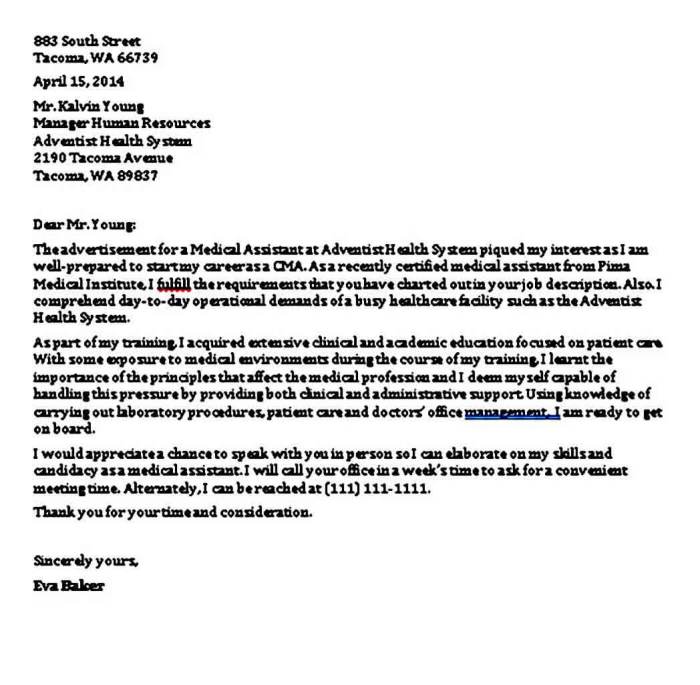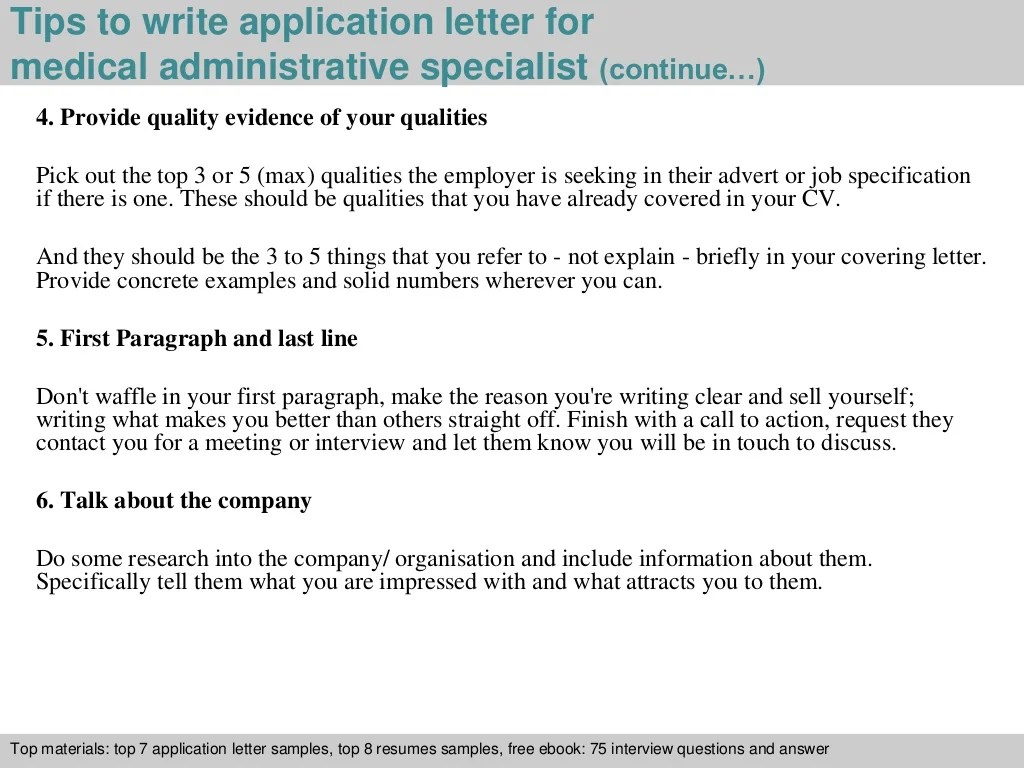A medical assistant is composing business correspondence – The role of a medical assistant in composing business correspondence is a crucial aspect of healthcare communication. As the primary point of contact for patients and other healthcare professionals, medical assistants are responsible for crafting clear, accurate, and professional correspondence that effectively conveys important medical information.
This comprehensive guide delves into the duties, best practices, communication channels, technology tools, and training and development involved in a medical assistant’s composition of business correspondence.
Duties and Responsibilities

Medical assistants may compose various types of business correspondence, including:
- Letters to patients
- Emails to colleagues
- Memos to supervisors
- Reports to management
- Correspondence with insurance companies
Accuracy and professionalism are crucial in composing business correspondence. Errors in grammar, spelling, or punctuation can damage the reputation of the medical practice and undermine the credibility of the medical assistant.
Medical assistants must also be aware of the ethical and legal considerations involved in composing business correspondence. Patient confidentiality must be maintained, and all correspondence must comply with applicable laws and regulations.
Best Practices

To compose clear and concise business correspondence, medical assistants should:
- Use clear and concise language
- Organize the correspondence logically
- Proofread carefully before sending
Medical assistants should also be familiar with the formatting and organizing conventions for business correspondence. This includes using the correct font, font size, and margins. It also includes using headings, subheadings, and bullet points to organize the information.
Templates and boilerplate language can be helpful in composing business correspondence. Templates can provide a starting point for letters and other documents. Boilerplate language can be used for common phrases and clauses.
Communication Channels
Medical assistants may compose business correspondence through a variety of channels, including:
- Fax
- Telephone
Each channel has its own advantages and disadvantages.
Email is a fast and convenient way to communicate, but it is not always secure. Mail is a more secure way to communicate, but it is slower than email. Fax is a secure way to communicate, but it is not as fast as email or mail.
Telephone is a good way to communicate for urgent matters, but it is not as formal as email, mail, or fax.
When choosing a communication channel, medical assistants should consider the following factors:
- The urgency of the message
- The sensitivity of the information
- The recipient’s preferred method of communication
Technology Tools

A variety of technology tools can assist medical assistants in composing business correspondence.
Word processing software can be used to create and format letters, memos, and reports. Email software can be used to send and receive emails. Fax software can be used to send and receive faxes. Telephone systems can be used to make and receive phone calls.
These tools can help medical assistants to compose business correspondence quickly and efficiently.
Training and Development: A Medical Assistant Is Composing Business Correspondence
Training and development are important for medical assistants who compose business correspondence.
Training programs can teach medical assistants the basics of business correspondence, including grammar, punctuation, and formatting. Development programs can help medical assistants to improve their writing skills and to learn about the ethical and legal considerations involved in composing business correspondence.
Supervisors and mentors can also play a role in the professional development of medical assistants. Supervisors can provide feedback on the medical assistant’s business correspondence and help them to identify areas for improvement. Mentors can provide guidance and support to medical assistants as they develop their writing skills.
Essential FAQs
What types of business correspondence do medical assistants typically compose?
Medical assistants may compose various types of business correspondence, including patient letters, appointment reminders, referral letters, insurance claim forms, and medical reports.
Why is accuracy and professionalism important in composing business correspondence?
Accuracy and professionalism are crucial in business correspondence to ensure the clarity and credibility of the information being conveyed. Errors or unprofessional language can lead to misunderstandings, misinterpretations, and damage to the reputation of the healthcare organization.
What ethical and legal considerations should medical assistants be aware of when composing business correspondence?
Medical assistants must adhere to ethical and legal guidelines, such as maintaining patient confidentiality, protecting sensitive information, and avoiding conflicts of interest. They should also be familiar with relevant laws and regulations governing healthcare communication.